Imperial and Indian Institute of Science driving innovative, high-impact science

Dr Nicola Gasparini visits research partners at the IISc
Imperial and IISc Bangalore have launched a second round of joint seed funding to drive high-impact and innovative research collaborations.
Leading experts from Imperial and IISc are working together on a wide range of innovative projects from the development of next-generation, human-integrated electronics, to new ways of monitoring biodiversity using artificial intelligence (AI).
All are funded by the Imperial-IISc Partnership Fund, which supports collaboration among researchers and students at both institutes with the aim of co-creating of high-impact science and innovation to address global challenges and enable new technology.
Applications are now open for a new round of funded projects, and researchers from Imperial and IISc are encouraged to apply. Applications are due to close on 31 October 2023, further details can be found at: https://www.imperial.ac.uk/admin-services/international-relations/imperial-iisc-seed-fund/
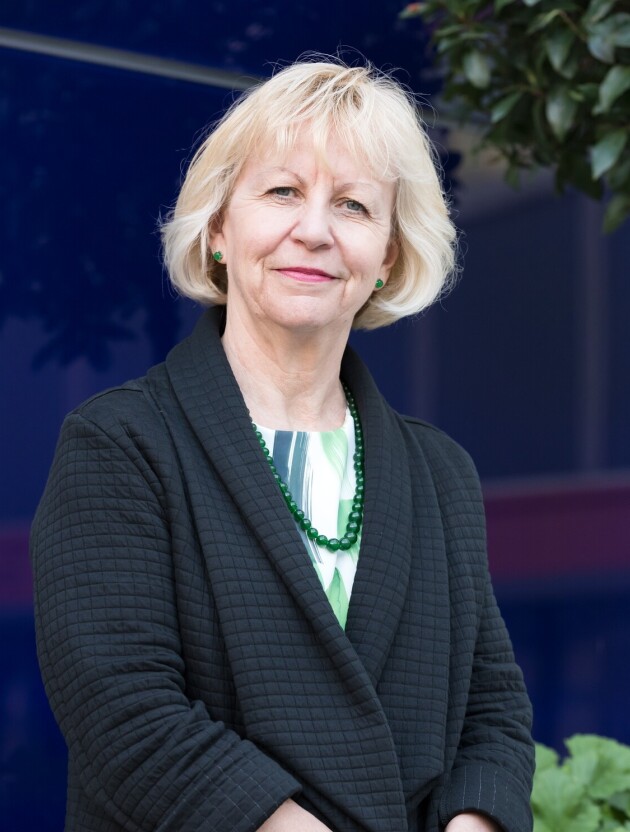 Imperial’s Vice-President (International), Professor Maggie Dallman (left) said: “Imperial has collaborated with the Indian Institute of Science for decades and it’s encouraging to see this latest ambitious partnership begin to bear fruit.
Imperial’s Vice-President (International), Professor Maggie Dallman (left) said: “Imperial has collaborated with the Indian Institute of Science for decades and it’s encouraging to see this latest ambitious partnership begin to bear fruit.
“Delivering highly innovative research, of the sort envisioned through this fund, necessarily requires collaboration between diverse partners who bring their unique perspectives to bear on intractable problems and truly innovative solutions.”
“I’m excited by the long-term potential of this fund, as together we co-create world class science with real-world, societal impact.”
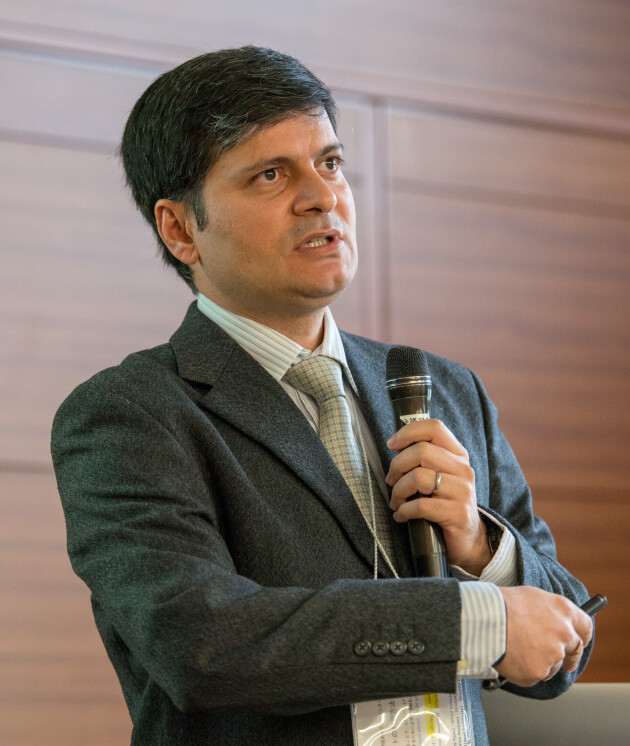 Professor Abhishek Kumar Singh (right), Chair of the Office of International Relations, IISc, added: “As the most recent round of fascinating projects testify, there are powerful synergies to be had between our respective institutions and talented researchers. Going forward I believe we will learn to identify even more opportunities for collaboration through this fund as well as other avenues to work together.”
Professor Abhishek Kumar Singh (right), Chair of the Office of International Relations, IISc, added: “As the most recent round of fascinating projects testify, there are powerful synergies to be had between our respective institutions and talented researchers. Going forward I believe we will learn to identify even more opportunities for collaboration through this fund as well as other avenues to work together.”
Over land and sea
Two previously funded projects both aimed at advancing our understanding of environmental systems using innovative new methods.
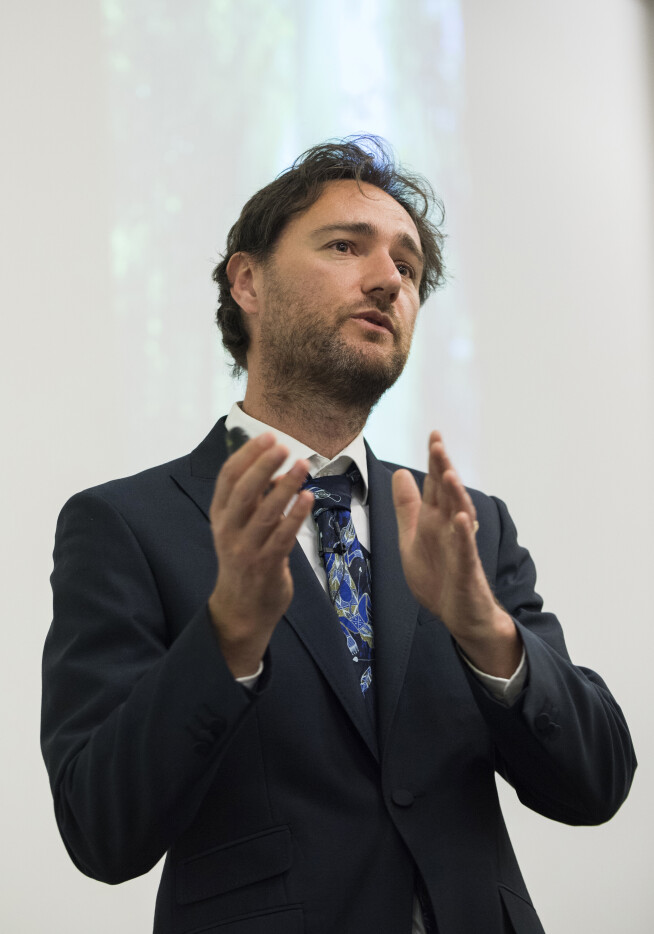
Imperial’s Professor Robert Ewers (Department of Life Sciences) and IISc’s Professor Rohini Balakrishnan (Centre for Ecological Sciences) are working on the use of bioacoustics and animal signalling for species identification and biodiversity monitoring.
With the latest funding, they are developing machine learning techniques to identify patterns in ecoacoustic data – particularly with respect to environmental gradients.
Professor Ewers comments: “India is an ideal place to explore the limits of our technology: it has diverse natural landscapes, as well as multiple types of anthropogenic impacts on those ecosystems. Professor Balakrishnan’s experience of working in these regions makes it easy to establish what would otherwise be a complex field system.”
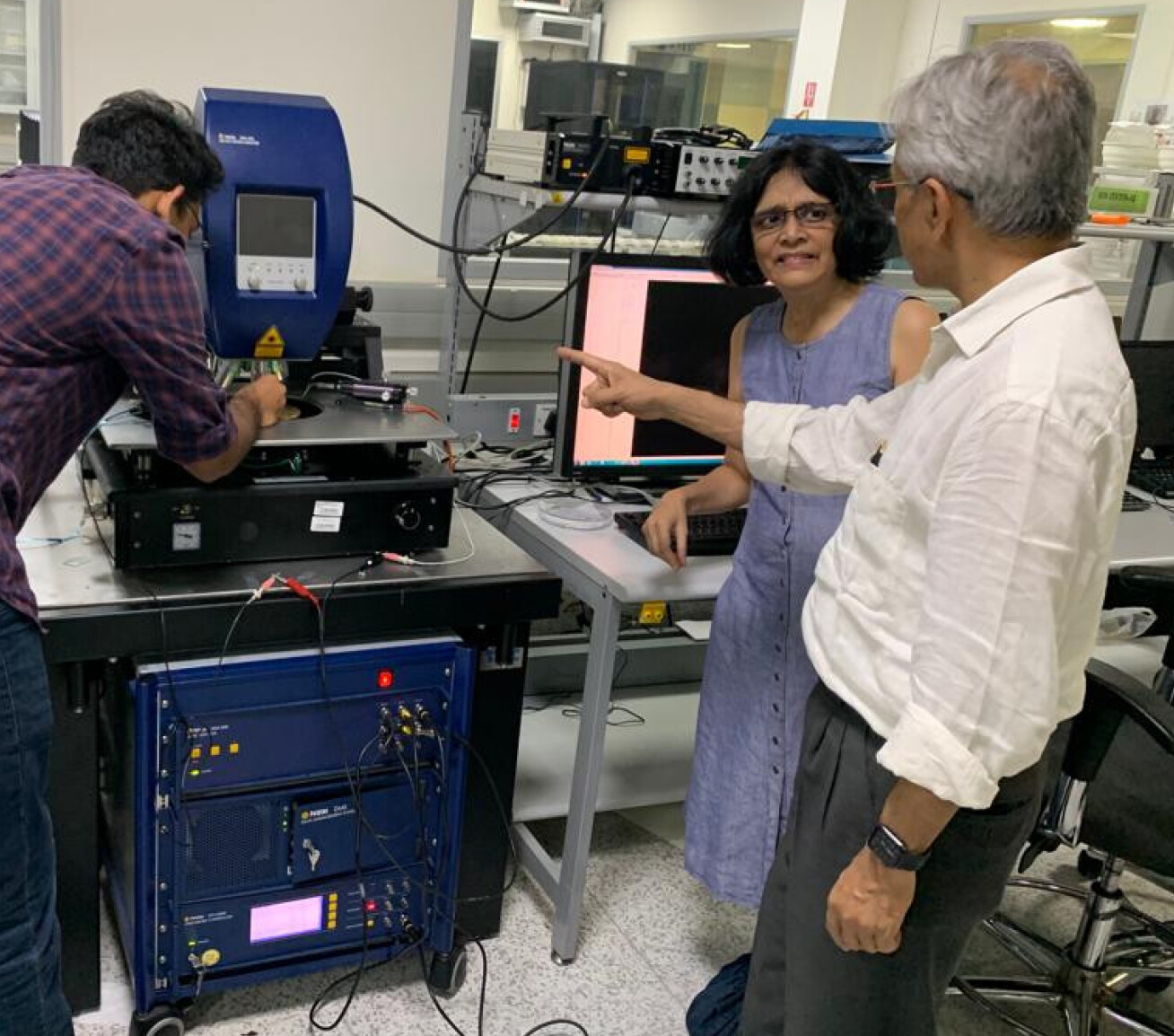
Professor Balakrishnan adds: “Employing these novel AI techniques, with the help of our Imperial collaborators, we aim to develop algorithms that accurately assess habitat quality and biodiversity across India's diverse landscapes. Such a project, with its far-reaching applications in land-use management and biodiversity monitoring, would not be possible without working with Imperial.”
Staying on an environmental theme, Professor Mark Rehkämper (Imperial, Department of Earth Science & Engineering) and Professor S. K. Satheesh (IISc, Divecha Centre for Climate Change), are measuring trace metals, such as iron, zinc and manganese, in atmospheric aerosols.
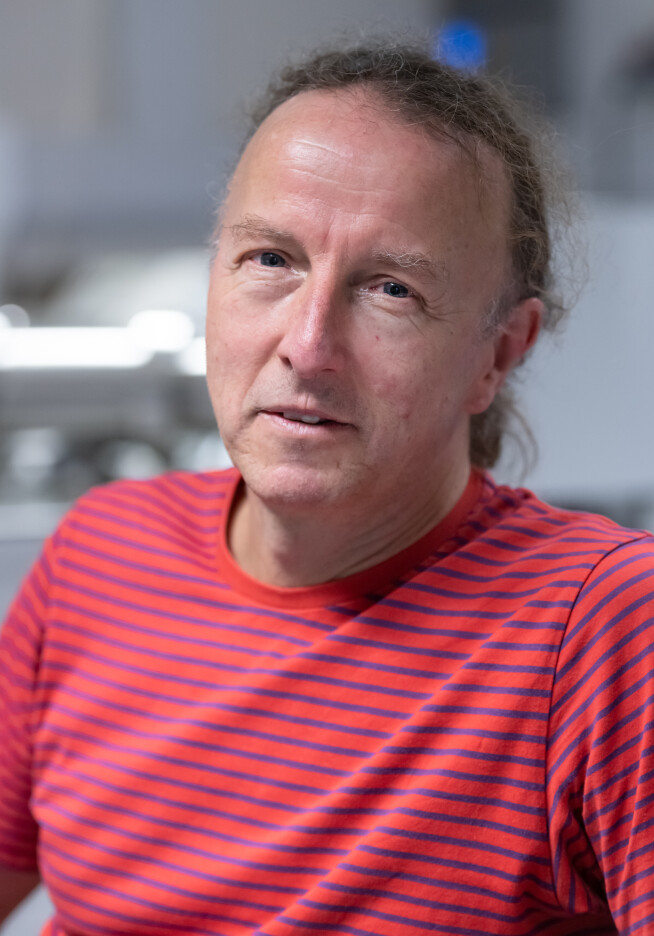
These metals are important sources of nutrients for primary producers of the ocean – including bacteria, phytoplankton, and algae – thereby exerting a major influence on marine biogeochemical cycles.
Professor Rehkämper comments: “As monsoon circulation brings different types of aerosols during different times of the year over the South Asian region, aerosol geochemical data will allow us, for the first time, to unravel how different aerosol sources influence the biogeochemical dynamics of the northern Indian Ocean. It will also provide a new understanding of aerosol-biogeochemistry-climate interactions.”
Material gains
Testifying to the diversity of projects funded, two other groups are helping in developing the next generation of advanced materials.
Dr Nicola Gasparini, (Imperial, Department of Chemistry) and Dr Sachin R. Rondiya (IISc, Department of Materials Engineering) are focused on the design and fabrication of high-performance organic electronics.
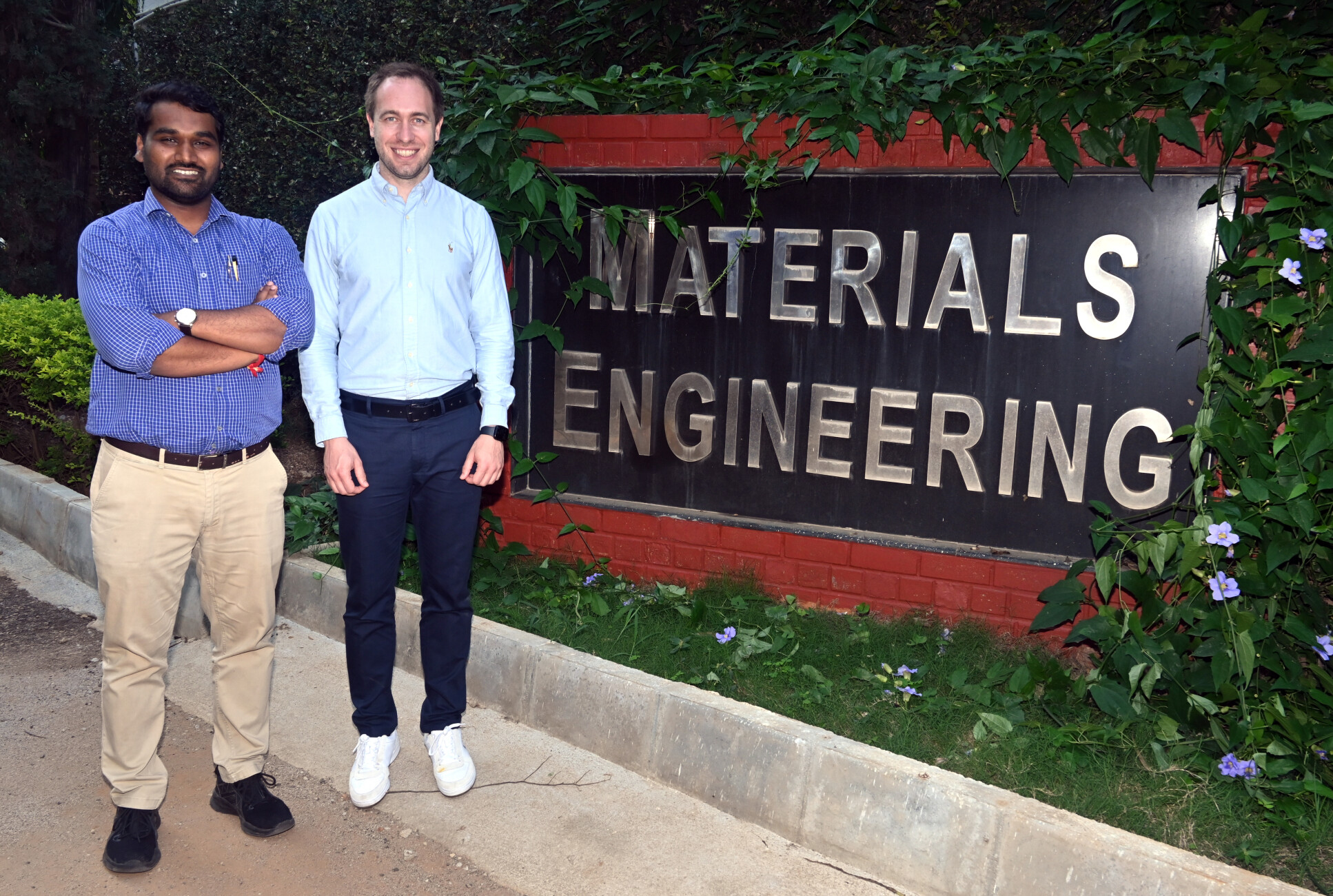
Dr Gasparini explains: “Electronic devices are ever-present in our daily lives, and are continually becoming cheaper, more compact and energy efficient. The future of this technology is expected to be integrated with the human body to extend our abilities and strengthen our health. Organic photodetectors (OPDs) have many benefits over traditional inorganic technologies, including compatibility with flexible substrates.”
Specifically, the team is looking at low bandgap organic semiconductor materials that can convert near-infrared light into electrical current with exceptional accuracy, making them ideal for health-monitoring applications.
Meanwhile, Dr Michele Conroy (Department of Materials) and Dr Sachin R. Rondiya (IISc, Department of Materials Engineering) are honing electron microscopy techniques to study thin film systems. This is an invaluable tool to understand the local atomistic dynamics of materials, which in turn is crucial for the development of emerging quantum and semiconducting technologies.
New opportunities
Applications for the next Imperial-IISc Partnership Fund are now open and are due close on 31 October 2023. The fund encourages exchange between participating research groups through provision of grants to cover travel, e-workshops, meetings, networking platforms and other activities to explore research directions. Visit:
https://www.imperial.ac.uk/admin-services/international-relations/imperial-iisc-seed-fund/
Article text (excluding photos or graphics) © Imperial College London.
Photos and graphics subject to third party copyright used with permission or © Imperial College London.
Reporter
Andrew Czyzewski
Communications Division